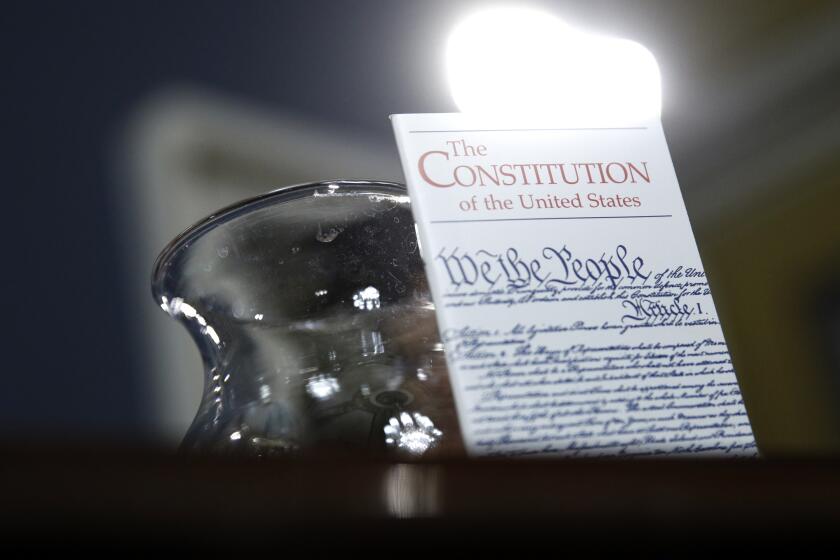Readers React: Why the U.S. chose Benghazi as its outpost in Libya
- Share via
To the editor: A visit to Benghazi, Libya, in 2005 prepared me to understand former Secretary of State Hillary Rodham Clinton’s current political tribulations. (“Benghazi, Sid-ghazi and Huma-ghazi: Can Clinton weather the storm?,” Op-Ed, Oct. 18)
Libya presented a kaleidoscope of urban realities. Benghazi was forcibly held by then-dictator Moammar Kadafi, but the city’s economic freedom clearly outpaced the capital city, Tripoli, which was hampered by a cumbersome bureaucracy dominated by Kadafi’s sons.
Benghazi was the rare city in Libya that provided hope for a progressive future for the country. Libya’s potential as a democracy was destroyed, however, in the chaotic aftermath of Kadafi’s overthrow.
The “failure” to protect the U.S. diplomatic compound that was attacked on Sept. 11, 2012, was based on the perception that Benghazi’s independent spirit made it safe for Americans. We were unable to foresee the jihadists’ ability to swiftly overwhelm the pro-American political infrastructure.
Tragic surprises are inevitable in civil wars and revolutions. Was George Washington to blame for losing the Battle of Bunker Hill? No more so than Ambassador J. Christopher Stevens and Clinton were wrong in choosing to base their U.S. presence in Libya in Benghazi.
John C. Rude, Pasadena
Follow the Opinion section on Twitter @latimesopinion andFacebook
More to Read
A cure for the common opinion
Get thought-provoking perspectives with our weekly newsletter.
You may occasionally receive promotional content from the Los Angeles Times.









